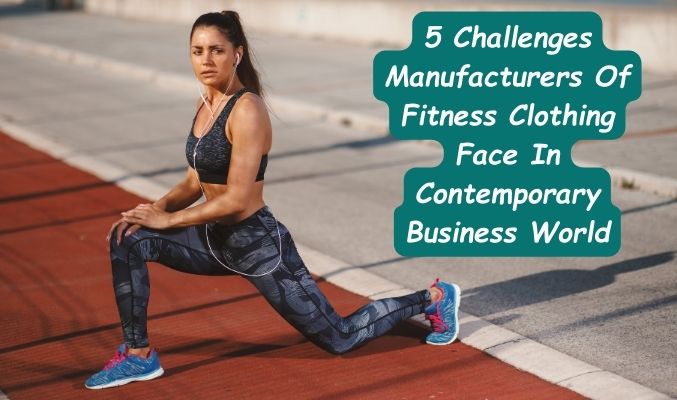5 Challenges Manufacturers Of Fitness Clothing Face In Contemporary Business World
The fitness apparel industry has experienced steady growth over the past decade, with consumers increasingly emphasizing comfort, style, and function in activewear. Private label manufacturers play an essential role in this sector, offering bespoke fitness apparel to retailers. However, despite the bright outlook, these manufacturers face several challenges that could hinder their business growth. This blog examines some of the biggest hurdles facing private-label fitness apparel manufacturers and possible strategies for overcoming them.
Penetrating Rivalry From All Parts of World
The fitness apparel market, especially for wholesale fitness clothing, is highly competitive, with many established brands dominating the industry. The most important thing here lies in the fact that the industry is working from all over the world, and a large number of fashion designers and other specialists are working consistently from dawn to dusk. So, the ultimate outcomes are even more challenging! As private label manufacturers try to carve out niche markets, they often need help competing with these top players regarding brand awareness and marketing budgets. Fixing this challenge necessitatesdeep involvement in diversity and offering unique value propositions such as B. Personalized design for retailers, quality materials, and fast delivery.
Maintaining The Highest Quality Standards
It is a big challenge that every retailer or private label activewear manufacturer must agree to without asking any question. You must chalk out distinct plans to maintain consistent excellence across orders. Retailers rely on these services to deliver products that meet specific standards and reflect their brand image. Quality control issues can lead to negative reviews and damage a manufacturer’s reputation. We can ensure consistent product quality by applying strict quality control procedures and investing in progressive manufacturing technology to fix this issue.
Article Overview
- <strong>Penetrating Rivalry From All Parts of World</strong>
- <strong>Maintaining The Highest Quality Standards</strong>
- <strong>Inventory or Stock Management</strong>
- <strong>Marketing Disruptions</strong>
- <strong>Demands for Manageable Costing</strong>
- <strong>Ethical and Bearable Practices</strong>
- <strong>The Bottom Line</strong>:
Inventory or Stock Management
Private label manufacturers often face uncertainty when it comes to record management. Accurately forecast store claims. Retailer demand can fluctuate significantly based on seasonal trends, marketing efforts, and customer preferences. Misjudgment of inventory levels can lead to excess inventory, leading to inventory costs and potential losses. Leverage data-driven insights, work closely with retailers, and adopt a just-in-time production approach to streamline inventory management.
Marketing Disruptions
Global incidents, like the COVID-19 pandemic, have highlighted the susceptibility of supply chains. Private label manufacturers often rely on suppliers from different regions, and disruptions in one area can knowingly influence manufacture schedules and delivery timelines. Spreading suppliers, maintaining safety stock, and leveraging technology to facilitate transparent communication within the supply chain can help mitigate these risks.
Demands for Manageable Costing
Retailers looking for a private label manufacturer, even a leading often focus on competitive pricing without sacrificing quality. This forces manufacturers to find cost-effective production methods, source materials economically, and negotiate reasonable terms with suppliers. Finding the balance between cost efficiency and maintaining profit margins is critical to the long-term success of private-label manufacturers.
Ethical and Bearable Practices
As consumer awareness of ethical and sustainable practices increases, private label manufacturers must adopt responsible sourcing and manufacturing practices. Using eco-friendly materials, minimizing waste, and ensuring fair labor practices throughout the supply chain is critical to building trust with green retailers and consumers.
The Bottom Line:
Every leading private label activewear manufacturer involved in the manufacturing of wholesale fitness clothing plays a crucial role in the dynamic and fast-growing fitness apparel industry. While they face several challenges, overcoming these hurdles is likely with the right policies and adaptableness. By ordering quality, distinguishing themselves through attractive designs, and embracing ethical and sustainable practices, private label manufacturers can build strong partnerships with retailers and create sustainable business growth pathways.
Being a top clothing retailer or private label activewear manufacturer in the United States, you must be very particular about getting in touch with the experts at Alanic Global. The company has risen to prominence after fighting the challenges this post focuses on. Your collaboration with the experts at the company help desk without any delay to share its insights to fight out crucial challenges you may also encounter.













